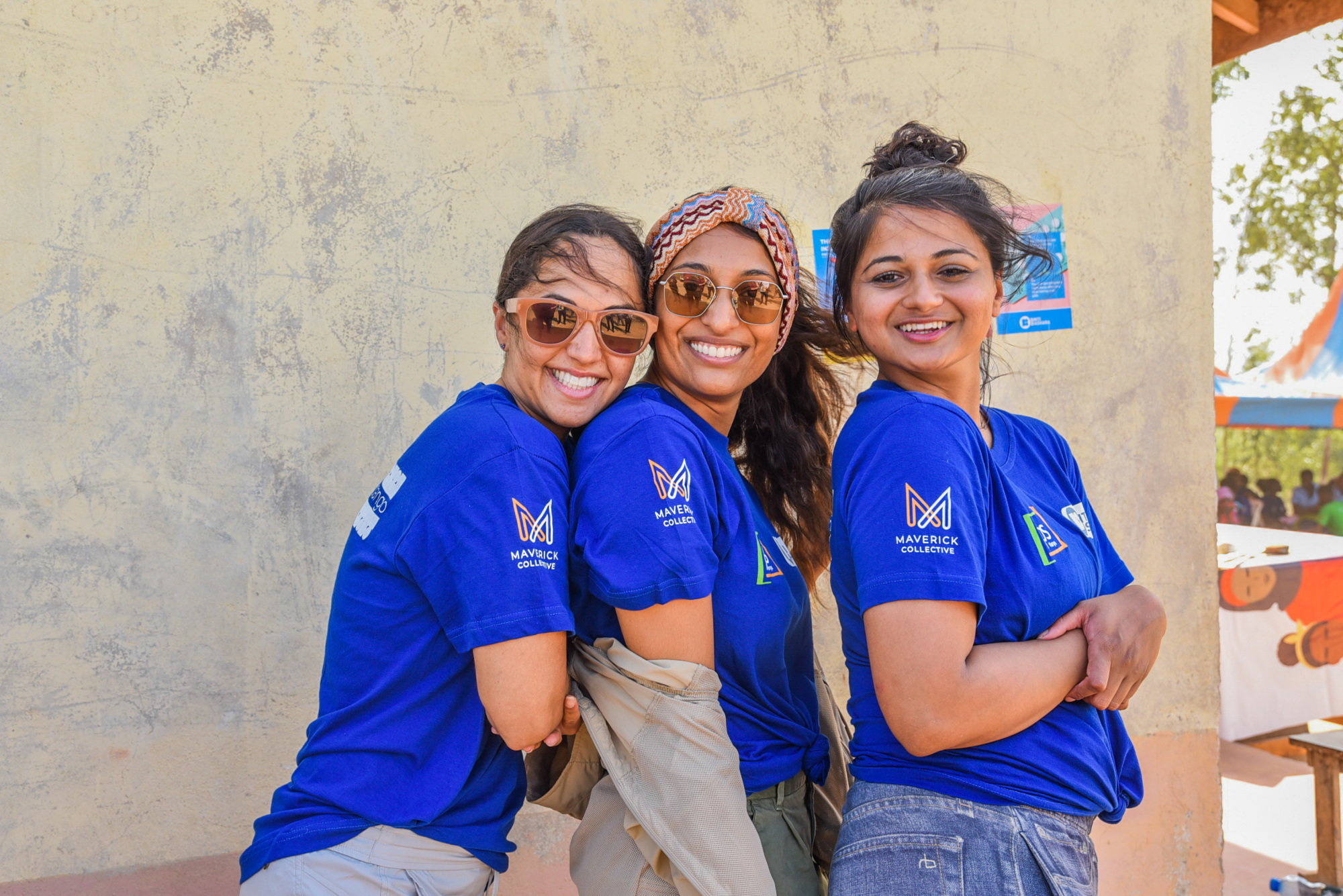Contraception Game Changers

By Ann Morris, Member, Maverick Collective
In Kenya, more than half of women who want contraception have access to it. But in places like Kilifi on the eastern coast, “Mwenye Syndrome”— the belief that a husband “owns” his wife — keeps many women from accessing the family planning they desire.
But across the country, it’s women volunteers, community health workers, doctors and researchers who are changing the game. Many women are becoming experts at spreading the “gospel” of family planning.
The women below are speaking up in support of contraception as part of a new pilot project implemented by PSI and its local network member, PS Kenya. With a seed investment from Maverick Collective, the project aims to improve access to contraception for women in underserved areas of Kenya like Kilifi.

Hildah Essendi. © Ann Morris
Dr. Hildah Essendi
Research and Metrics Director, PS Kenya
“Being a researcher is the best thing that could have happened to me. I have developed a deeper way of understanding people and the challenges they face.”
Growing up in western Kenya as one of seven children, Hildah Essendi hoped to fulfill her father’s dream for her of becoming a lawyer. But when she missed the test score cutoff by a couple points and was offered a spot in a cultural studies program, she decided to give it a try. Her sisters thought cultural studies meant she was learning to dance, she recalls, laughing. But actually it was the start of a successful career in anthropology and research that has taken her around the world.
After graduating from college, she put herself through graduate school in anthropology at Nairobi University, working nights and weekends as a research assistant. A subsequent position with an international nonprofit exposed her to colleagues who had studied abroad, and she decided to pursue her PhD. She found a work/study program at the University of Southampton in England that allowed her to obtain a doctorate in three years. She ended up living and working in England for several years and now holds joint citizenship.
Why is she so driven? “Dr. Hildah,” as she is known, credits her experience growing up. When she was in her last year of primary school, her family started experiencing financial and emotional challenges that meant they had to make some changes to their previously comfortable lives.
“These challenges meant that I had to motivate myself,” she reflects. “I started putting a lot of pressure on myself. My mother showed a lot of strength taking care of seven children, and so all of my siblings are quite motivated and driven.”
Hildah returned to Kenya in 2016 to work for PS Kenya. After working for years in social research, Hildah now manages two departments and more than 30 people. She designs and leads studies about everything from the effectiveness of malaria programs to how to best supplement iron and folic acid in girls to how to reach women in remote areas with family planning. She writes and presents research papers at conferences all over the world.
While she enjoys the academic side of her profession, she is more passionate about the practical side – improving the lives of her fellow Kenyans.
“I come across some heartbreaking situations in my research,” she says. “I like the fact that my work is not just academic, but that my studies can have direct impact on people’s lives.”

Lydia Endetie. © Ann Morris
Lydia Indetie
Health Educator, Dandora neighborhood, Nairobi
“There are so many myths and misconceptions. I give women the truth about family planning so they have all the information they need to choose.”
Lydia Indetie puts on her red apron filled with various contraceptive samples, grabs her colorful book of infographics and gets ready for another presentation. More than a dozen women crowd under a makeshift tin porch along a dusty Nairobi street, many holding babies in their laps. They are here this afternoon to learn about family planning methods, either for themselves or for their daughters.
Lydia has been working as a health educator in the low-income neighborhood of Dandora for 15 years, first as a community health volunteer and now as a “mobilizer” for the local Tunza health clinic. So she is not surprised when one woman asks if a contraceptive implant in the arm can travel through the body to the heart. Or when another woman says she’s heard that all contraceptive methods cause cancer.
She answers their questions patiently, explaining the advantages and disadvantages of each method. With three children of her own, ages 17, 15 and 9, Lydia is proud of how she planned her own family and how she and her husband are able to feed and educate their children.
Trusted in the community, Lydia is often approached by mothers who ask her to talk to their daughters about contraception. Teenage girls come to her for help as well.
“Girls are very free with me,” she says, noting that in Kenya unmarried girls under 18 must have parental consent to receive contraception. “A girl tells me that she is sexually active but can’t tell her mother, so I go with her and we both talk to mama.”
In the end, she believes her work makes a huge difference.
“With family planning, women can give birth to kids and afford to feed them and pay school fees,” she says.

Dr. Aisha Mohamed. © Ann Morris
Dr. Aisha Mohamed
Manager, National Family Planning Program, Reproductive and Maternal Health Unit, Kenyan Ministry of Health
As the first woman to lead Kenya’s family planning division, Dr. Aisha Mohamed brings a passion for reaching women in underserved areas and a personal understanding of how challenging that can be.
A native of Kilifi — a county in the more remote northern coastal region of Kenya — she grew up seeing “Mwenye Syndrome.” in many close to her. While she understands the roots of the cultural tradition, she believes it’s time women were empowered to make their own decisions.
With a background in dentistry, Dr. Mohamed found her calling when she studied public health at the London School of Hygiene and Tropical Medicine. When she joined the Ministry of Health, she specifically requested to be posted in public health. Family planning quickly became her passion.
Charged with improving Kenya’s contraceptive prevalence rate (CPR), which is already high in much of central Kenya, she is looking for new ways to reach women in remote areas. In one area of the northern coast, for example, women still have an average of eight children, more than double the national average.
With two children of her own, she sees the advantages of a smaller family.
“I want to be able to engage with them, go to their school, be there for their performances,” she says of her own son and daughter. “You just can’t do that with eight children.”

Elizabeth Kombe. © Ann Morris
Elizabeth Halima Kombe
Community Volunteer, town of Bamba, Kilifi County
“I believe what a man can do, a woman can do better.”
In a region of Kenya where traditional views of gender roles prevail, Elizabeth Kombe speaks with the rare perspective of a feminist. At 27, she commanded the respect of many older women at a recent community meeting as she shared her views that women should have the right to choose a contraceptive method.
One of six children raised by a widow, Elizabeth completed high school and started college, but dropped out because she could not cover the tuition. She is unmarried, unusual at her age, and struggles to support herself. She receives a small stipend for volunteering at the local orphanage.
She first learned about family planning four years ago during a training session in her remote small town led by the international nonprofit World Vision. Now she has taken up the cause, using her voice to try to influence her peers.
“It enables people to take care of their children,” she explains. “They can provide food, education and health for their children and give them a future.”

